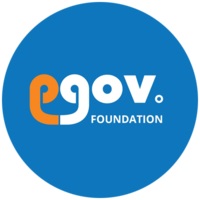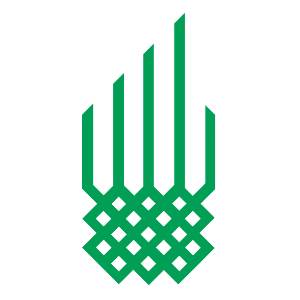
Website UNDP
Background
UNDP has been working in India since 1951 in almost all areas of human development. Together with the Government of India and development partners, we have worked towards eradicating poverty, reducing inequalities, strengthening local governance, enhancing community resilience, protecting the environment, supporting policy initiatives and institutional reforms, and accelerating sustainable development for all. With projects and programmes in every state and union territory in India, UNDP works with national and subnational government, and diverse development actors to deliver people-centric results, particularly for the most vulnerable and marginalized communities. As the integrator for collective action on the Sustainable Development Goals (SDGs) within the UN system, we are committed to supporting the Government of India’s national development vision and priorities and accelerating the achievement of the SDGs for the people and the planet. UNDP India’s current Country Programme, 2018-2022, is in its final year of implementation. Our new Country Programme (2023-2027), which comes into effect in 2023, builds on our prior work and aims to provide an integrated approach to development solutions in three strategic portfolios:
• Strong, accountable, and evidence-led institutions for accelerated achievement of the SDGs
• Enhanced economic opportunities and social protection to reduce inequality, with a focus on the marginalized
• Climate-smart solutions, sustainable ecosystems and resilient development for reduced vulnerability South-South cooperation, gender equality and social inclusion are promoted across the pillars.
The programme is supported by a framework of renewed partnerships and blended finance solutions, strategic innovation and accelerator labs, and data and digital architecture You are invited to join a team of future-smart development professionals to support India in achieving the national and globally agreed goals. As part of the UNDP team, your focus will be to work with diverse stakeholders to find country-specific solutions that lead to sustainable development and reach those furthest behind first.
The Plastic Waste Management Project is designed to minimize negative impacts and risks to environment and human health in India. The aim is to enhance sustainable plastic waste management segregation/collection/recycling) practices through a socio-technical model in line with Swachh Bharat Mission in India, while ensuring compliance with regulations and ensuring improved use of resources. The project targets institutionalization of waste pickers (safai sathis) through improved governance mechanisms, capacity building and improved social conditions. The project also targets community engagement to enhance responsible waste disposal behaviour, and cross-stakeholder engagements for improved action on plastics. To achieve the project objective and outcomes, the project is structured in 4 components.
Component 1 aims to develop, support, and implement an economically sustainable model (ESM) for packaging plastic waste management.
Component 2 focuses on design and implementation of Pilots in Material Recovery Facilities (Swachhta Kendras) for improved plastic waste management in administrative wards of selected cities.
Component 3 is directed mainly to design, sustain, and provide elements to institutionalize Swachhta Kendras in governance bodies and to obtain improved socio-economic conditions for waste pickers; and Component 4 aims towards developing knowledge management, monitoring and communication mechanisms based on in-built adaptive feedback system during the project duration.
Duties and Responsibilities
The candidate will broadly provide technical support to the team to liaison and network with various stake holders of Khambalia Municipality and collaborate with project partners disseminate and communicate effective approaches to jointly achieving PWM unit objectives and goals.
- Liaison and Network with various stake holders of Khambhalia Municipality and 15 Villages, both government and nongovernment, in coordination with Service Provider (SP). Support in proper systems is put in place to ensure collection of all dry waste 1-2 MTs in first 6 months per day and later augmentedto collection of all plastics and dry waste to 3-4 MTs through the SP.
- Organize Capacity building related to project activities in coordination with SP, particularly oversight the book-keeping, accounts, and the business model approach. Initiate the required trainings at the SP level and related stakeholders.
- Establish processes and systems for effective implementation of M & E strategies as per the M & Eframework developed under the project. Review monitoring reports in terms of problems and actions needed as well as for impact evaluation andto support in identifying the causes of potential bottlenecks in project implementation.
- Keeps a tab, understanding and support in accessing and sharing the technology led information with arange of stakeholders on all the waste incoming, managed and recycled.
- Facilitate as an important Team member at state level, in setting up a dynamic monitoring and evaluationsystems for monthly monitoring and reporting of project. Facilitate through SP, enterprise development by creating women self-help group to empower women.
- Coordinate between UNDP CO, Field staff, implementing partner, ULB, DRDA and other Govt and Non-Govtstakeholders to facilitate project implementation in the respective cities & 15 villages.
- Act as a focal point in the city for UNDP. Perform any other tasks assigned from time to time by the project senior management at UNDP.
Competencies
Core
- Achieve Results: LEVEL 1: Plans and monitors own work, pays attention to details, delivers quality work by deadline
- Think Innovatively LEVEL 1: Open to creative ideas/known risks, is pragmatic problem solver, makes improvements
- Learn Continuously: LEVEL 1: Open minded and curious, shares knowledge, learns from mistakes, asks for feedback
- Adapt with Agility: LEVEL 1: Adapts to change, constructively handles ambiguity/uncertainty, is flexible
- Act with Determination: LEVEL 1: Shows drive and motivation, able to deliver calmly in face of adversity, confident
- Engage and Partner: LEVEL 1: Demonstrates compassion/understanding towards others, forms positive relationships
- Enable Diversity and Inclusion: LEVEL 1: Appreciate/ respect differences, aware of unconscious bias, confront discrimination
Required Skills and Experience
Education:
High School OR Bachelor’s in relevant field.
Experience:
- Minimum six years’ experience post high school experience OR Minimum three years’ experience post-Bachelors in the related field
- Experience at the national or international level working with informal waste pickers, recycling workers will be an added advantage.
- Strong familiarity with current theories and issues in gender, development studies and human rights.
- Experience in project development, initiation, and coordination.
- Experience in report writing, workshop facilitation and capacity building skills.
- Demonstrated ability in working with different kind of stakeholders.
Remuneration:
Remuneration starting at INR 9,38,398 (Annual) / INR 78,200 (Monthly) as per the scale depending on qualifications and experience. The remuneration is excluding 8.33% pension amount paid over and above the salary.
To apply for this job please visit estm.fa.em2.oraclecloud.com.





